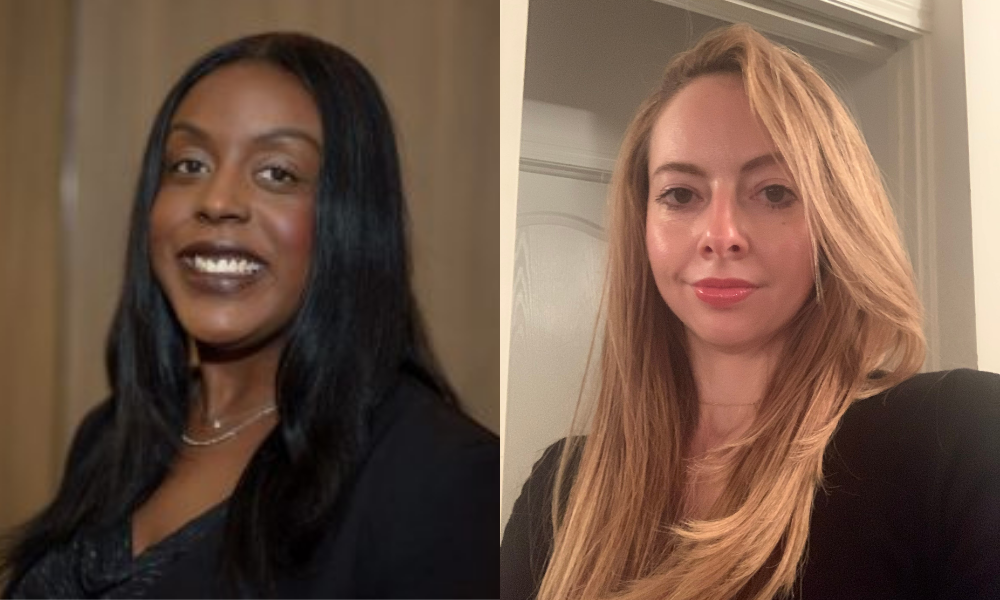
Freedom convoy debate raised questions of power balance between individual's rights and state powers

The Criminal Lawyers Association says lawyers should pay attention to how freedom convoy protestors are treated in bail cases because it sets a precedent for detentions in future protests, such as the Black Lives Matter movement and those for Indigenous land rights.
Tonya Kent and Maya Shukairy are “recent call” directors for the CLA board. The CLA hosted an event for criminal defence lawyers to discuss the impact of the freedom convoy protests on civil liberties and the criminal law practice.
It was essential to hold the event because of the significant effect of the convoy on Canadians, particularly in Ottawa, Kent says.
“We felt it was a critical legal discussion because huge issues were coming up with bail, the Emergencies Act, what it means to protest, and what’s too far.”
Shukairy says the crisis highlighted confusion regarding bail principles, and lawyers were unsure of the regulations guiding the case and wanted to get clarity from their respective colleagues.
Tamara Lich, a freedom convoy organizer who was arrested during the protest, was recently released after a bail review hearing. Shukairy says it raises interesting issues because the bail hearing judge ordered Lich’s detainment while the bail review judge ordered her release with a surety with stringent conditions.
The bail hearing judge lived in a neighbourhood close to where the protests occurred, so Shukairy says it raised the point that maybe the judges sitting on these cases should not be affected by the disruptions in the city.
While Tamara Lich’s bail review was successful, her fellow co-organizer, Patrick King, remains in jail after an Ottawa Justice of the Peace denied him bail. Kent says that although King’s lawyers are yet to seek a bail review for his case, they might have waited for Tamara Lich’s review result before filing.
The decision would create a good precedent for King’s lawyer to get him released, Shukairy says. Sometimes when lawyers know a similar case is coming up for review, they wait to see what happens.
She says the case raises important questions of the extent to which state authority can enforce laws and, for criminal lawyers, the power balance between individual’s rights and state powers.
Lawyers further discussed the Emergencies Act and its implementation, questioning if the federal government enforced it because the police were not doing their jobs, Kent says.
The consensus was that the Emergencies Act was unnecessary because the police already had laws against some disruptions and could have enforced them, she says.
Lawyers also discussed the controversy of the defence counsel’s role in representing the accused in high-profile cases. Shukairy says lawyers do not necessarily agree with the actions of the people they defend.
“Our job is to defend anyone regardless of what they did. We don’t defend [the accused’s] acts; we defend their rights to a fair trial.”
Defending an alleged murderer does not mean a lawyer is pro-crime and pro-murder; it means the lawyer is protecting an individual’s rights to a fair trial because that is what criminal law is ultimately all about, she says. “It is about proving the case beyond a reasonable doubt and without breaching the individual’s life while doing so.”
As recent call directors for the CLA, Kent and Shukairy ensure that the interests of new lawyers called to the bar are represented before the CLA board. In addition, Shukairy says they are working on the CLA Continuing Professional Development program to keep lawyers updated on criminal law events because COVID has made attending court more difficult.
“We’re trying to keep the recent calls in touch with all the current criminal law events by organizing them and giving them as much education and connection as we can.”
Kent and Shukairy are also members of the CLA membership committee, diversity committee and women’s committee.